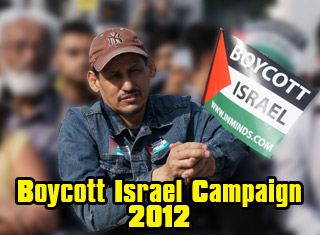
 Innovative Minds © 2014. All Rights Reserved. www.inminds.co.uk | |
|
[Lebanon] Comment: A couple of articles on the financial cost, for Israel, of invading Lebanon. The first article published nearly a month after the second one presumably shows the more accurate figure at $2.8 billion[1] in military expenses alone. Its interesting that Israeli analysts believe "the ceasefire arrived just in time" and that the the economic "damage would have been much more serious if the war had gone on even a few weeks longer" and suggest that it was of this reason - Israel not being able to sustain a war for longer than a few weeks, that played a role in the Israeli government's final acceptance the UN ceasefire. [1]For converting from NIS to US$ we are assuming 4 New Israeli Shekels for 1 US Dollar which is fine for estimates. IDF: Lebanon war cost NIS 11.2 billion ($ 2.8 billion) in military expenses aloneZvi Zrahiya, Haaretz Correspondent
An estimated 237,000 artillery shells were fired during the war.
Israel Defense Forces The direct cost of the war in Lebanon totaled NIS 11.2 billion ($2.8bn)[1], including NIS 3.5 billion ($0.9bn) for ammunition and NIS 1 billion ($0.25bn) for the reserves, Israel Defense Forces officers told the Knesset Committee on the Defense Budget Wednesday. An estimated 237,000 artillery shells were fired during the war, they added. The Finance Ministry and the defense establishment are at odds over restoring the army's preparedness, which is expected to cost NIS 7 billion to NIS 7.5 billion ($1.75bn to $1.9bn). The defense establishment wants to complete the job within one year, while the treasury wishes to spread the cost over three years. Some Knesset members suggested using some of the $1.75 billion that Israel receives annually from the United States. But defense officials said that for the next few years, most of this aid is already committed to buying Apache helicopters, F-16 planes, air force ammunition and fuel. The committee authorized an additional NIS 1.75 billion ($0.4bn) for the defense establishment, of which NIS 600 million ($150mil) will be used to cover war expenses - NIS 300 million ($75mil) for the reserves and NIS 300 million ($75mil) for supplies, including fuel and ammunition. The remaining NIS 1.15 billion ($0.3bn) is compensation for the fact that an American pledge for this amount, to cover the costs of the pullout from Gaza, never arrived. But committee members said that they would demand greater transparency from the defense establishment as a condition for future budget transfers, including a detailed breakdown of expenses. MK Avshalom Vilan (Meretz) said that war is an expensive business and asked why no cost-benefit analysis had been done. "Clearly, budgetary issues must be considered in a war, and I get the impression that the budgetary issue was not top priority," he said. Committee Chair MK Tzachi Hanegbi (Kadima) said that Wednesday's debate would be a prelude to others. Source: http://haaretz.com/hasen/spages/759753.html Lebanon war cost Israel $1.6bnJulian Borger, The Guardian Israel's month-long war against Hizbullah has cost the country $1.6bn (£850m), or about 1% of GDP, according to initial government estimates. About a third of that went directly to the army.
According to Mr Shraga Brosh, the head of the Manufacturer's Association of Israel, the damage would have been much more serious if the war had gone on even a few weeks longer, and such economic considerations may have played a role in the government's decision to accept the UN ceasefire.
Most analysts believe the ceasefire arrived just in time to stop the conflict putting a significant brake on Israel's high growth rate, although the economy is vulnerable to any resumption in the fighting. However, the total bill is unlikely to exceed the approximately $2.5bn Israel receives each year in aid from the US - $2.2bn of that in military grants. At least 6,000 houses or businesses in the north were destroyed or damaged during the fighting. Much of the region's fruit harvest rotted on the trees because farm labourers spent the month in their shelters. More than a million people were displaced from the north and about a quarter of the region's small businesses had to be saved from bankruptcy by emergency government support, according to Oded Feller, the president of the Chamber of Commerce for Haifa and the north. On top of that, 30,000 reservists left their jobs around the country when they were called up. Most importantly, tourism died completely in the northern beach resorts and around the Sea of Galilee and was badly hit in the rest of the country. Even if fighting does not break out again, there are likely to be ripple effects on tourism into next year at least. With the truce holding for the time being, the Tel Aviv stock market has already recovered to within 2% of its pre-war level and the shekel has also bounced back. The 5% growth rate of the past three years could be slowed, but perhaps by less than 1%, government economists hope. "In a couple of months, we can recoup half the losses. The factories will work overtime," said Shraga Brosh, the head of the Manufacturer's Association of Israel. Foreign investment, which has fuelled the high growth of recent years, is expected to double this year to about $12bn, mostly in the form of acquisitions of Israeli start-ups, he said. "Right now, there is no negative reaction. Those people who plan to invest in Israel are keeping their investment here. People believe the economy is strong." According to Mr Brosh, the damage would have been much more serious if the war had gone on even a few weeks longer, and such economic considerations may have played a role in the government's decision to accept the UN ceasefire. Israel's capacity to sustain confidence will depend on whether the truce represents the start of a lasting peace on the northern border or only a lull before the next round in the Arab-Israeli struggle. The tourist industry is the economy's canary - the first to succumb to the impact of instability - and it has taken a beating. The number of foreign tourists arriving in the second half of the year is expected to halve, a loss that would represent 0.4% of GDP. "We're getting no future bookings whatsoever. Nobody is coming here," said Mark Feldman, the managing director of Zion Tours in Jerusalem. There have been a few "solidarity tours" by pro-Israeli groups to help prop up the industry, and there are even "Katyusha tours" of the north. But Mr Feldman said the tours accounted for little more than 5% of the war losses. "The economic effects have yet to be felt, and the long-term ramifications are very, very serious," he said. "As British and German companies start planning for 2007, Israel will be omitted from the brochures. So I can't give a figure for loss of income tomorrow."
Related ArticlesAlso Of InterestPage URL: http://inminds.co.uk/article.php?id=10121
|
|
Support Us
If you agree with our work then please support us.Campaigns INMINDS Facebook Live Feed Latest Video's
INMINDS Twitter Feed Tweets by @InmindsComFeatured Video's
You need Flash player 8+ and JavaScript enabled to view this video.
[all videos (over 200)..] Featured MP3 Podcast  "Al-Quds is not the responsibility of the Palestinian people only - they are only the guardians of Al-Quds - but we are the owners. Al-Quds belongs to the Muslims and it has to be defended by the Muslims wherever they are!" Muslim Council of Britain Al Quds Day 2006, London [5min / 2Mb] [all podcasts..] Newsletter Feedback |
 |
 |













































